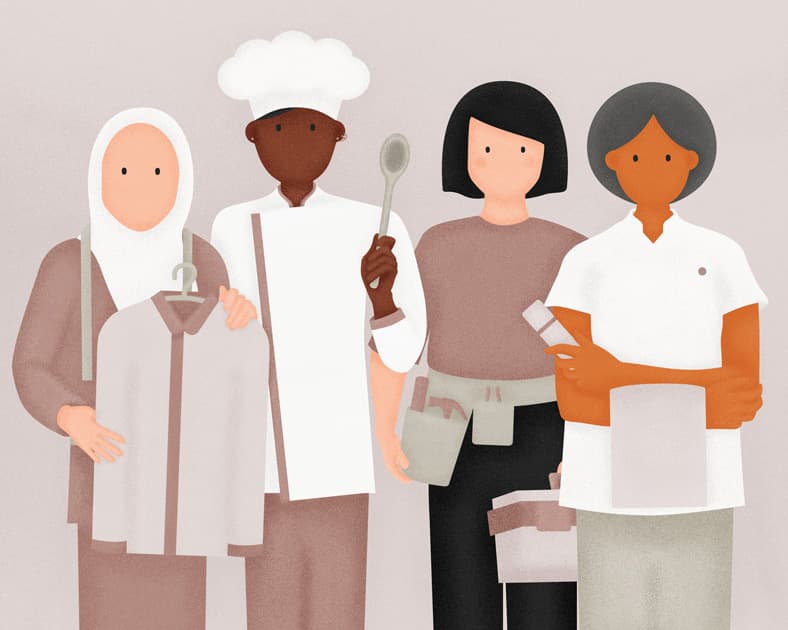
- Business Growth & Optimisation
International Women’s Day: 5 Women in Business Share Their Best Advice
Zeller celebrates the rise and rise of female entrepreneurs.
New business applications reached a record high in 2021, and women are leading the charge. There has been a significant acceleration in the number of women choosing self-employment and building their own businesses from the ground up.
For the last 20 years, more women have opted to start their own businesses than ever before — outpacing men — and they have been thriving. It’s a trend that’s reshaping the economy and one we should all be watching.
A significant uptick post-COVID
While it brought countless other stressors, the pandemic offered some a rare opportunity to pause, reflect and reassess. For many, the involuntary disruption gave way to lightbulb moments, a realignment of values, and newfound confidence to explore a different type of employment. The statistics show it’s women who have relished the opportunity to step away from the norm, and find other pathways to the workforce.
Two-thirds of new businesses launched in the last couple of years are female-led. Data from the Australian Bureau of Statistics shows that just over a third of Australia’s small businesses are now established and run by women (34%) – a significant jump from a little over 20% a decade ago.
Rise of the “womenpreneur”
This trend is not exclusive to Australia. It’s part of a global phenomenon that has seen a record number of women launch their own businesses in recent years, and it’s likely to continue.
The International Council for Small Business’ top trend for 2021 was “the evolution of the entrepreneur: womenpreneurs” — a move heralded by the United Nations. Despite historical and current challenges to their participation in the business world, women have made their mark on the small business ecosystem. Female-run businesses are one of the top growing economies.
Zeller is proud to support a diverse array of female merchants — including women who have left established careers behind in pursuit of a passion; mothers searching for more flexible hours, and a better work-life balance; and those born with confidence in their entrepreneurial spirit. This International Women’s Day, Zeller is celebrating by spotlighting five stories of thriving female-led businesses from within our merchant community, and sharing their best piece of business advice.
Delise Freeman, Deadly Del Designs
"I am a proud Wiradjuri woman living in Goulburn, New South Wales. I consider myself to be a contemporary Aboriginal artist who is self-taught. I grew up learning and understanding my culture and I am very proud of my Aboriginal heritage.
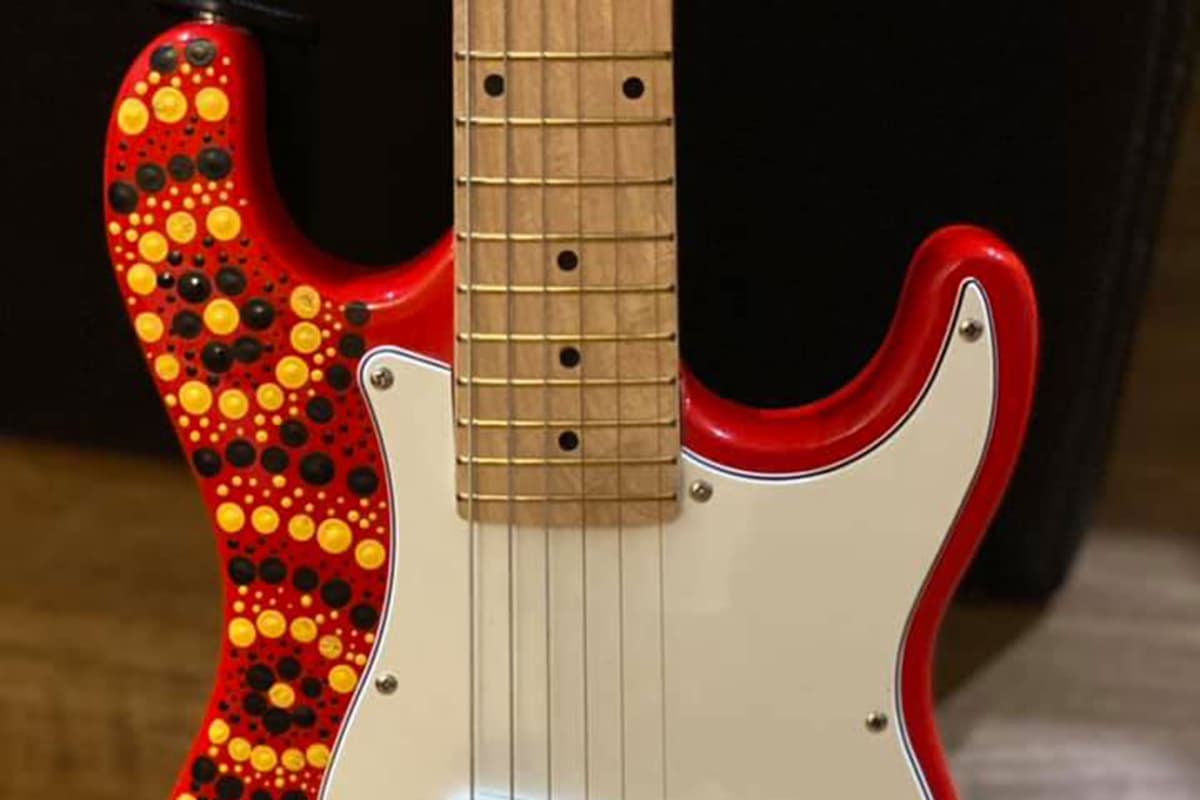
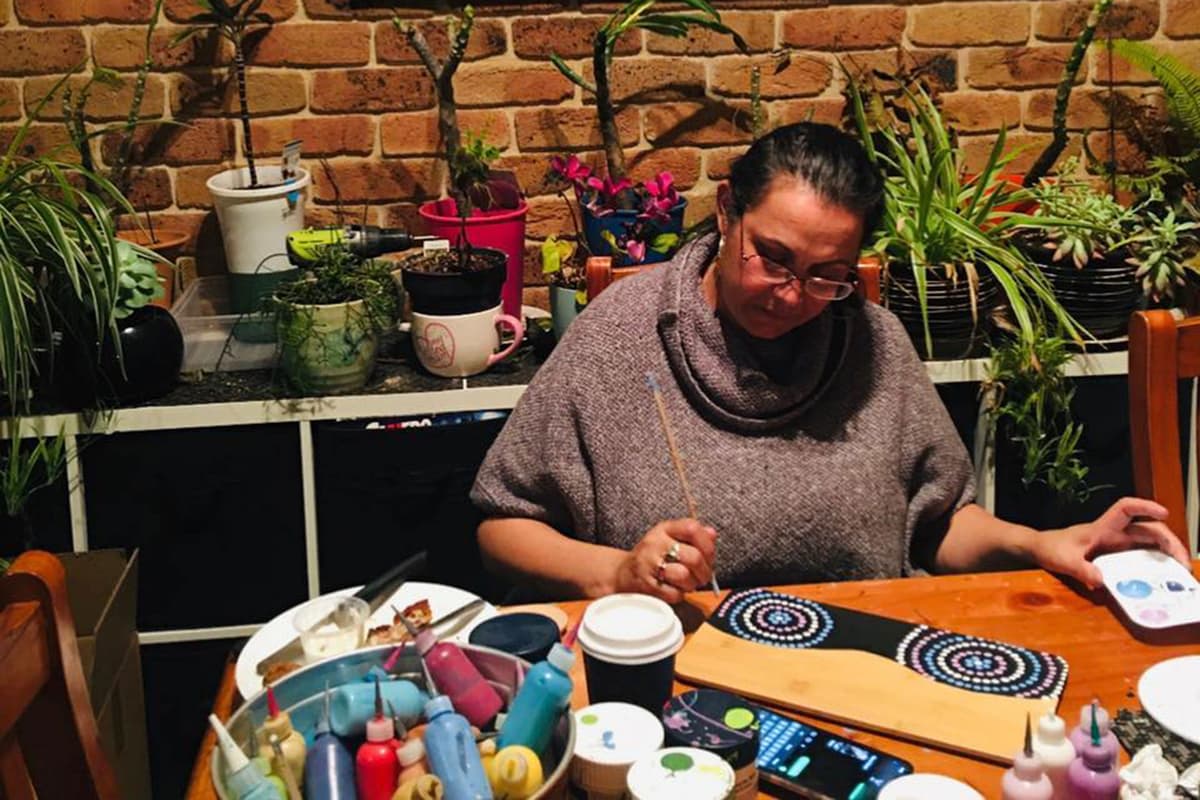
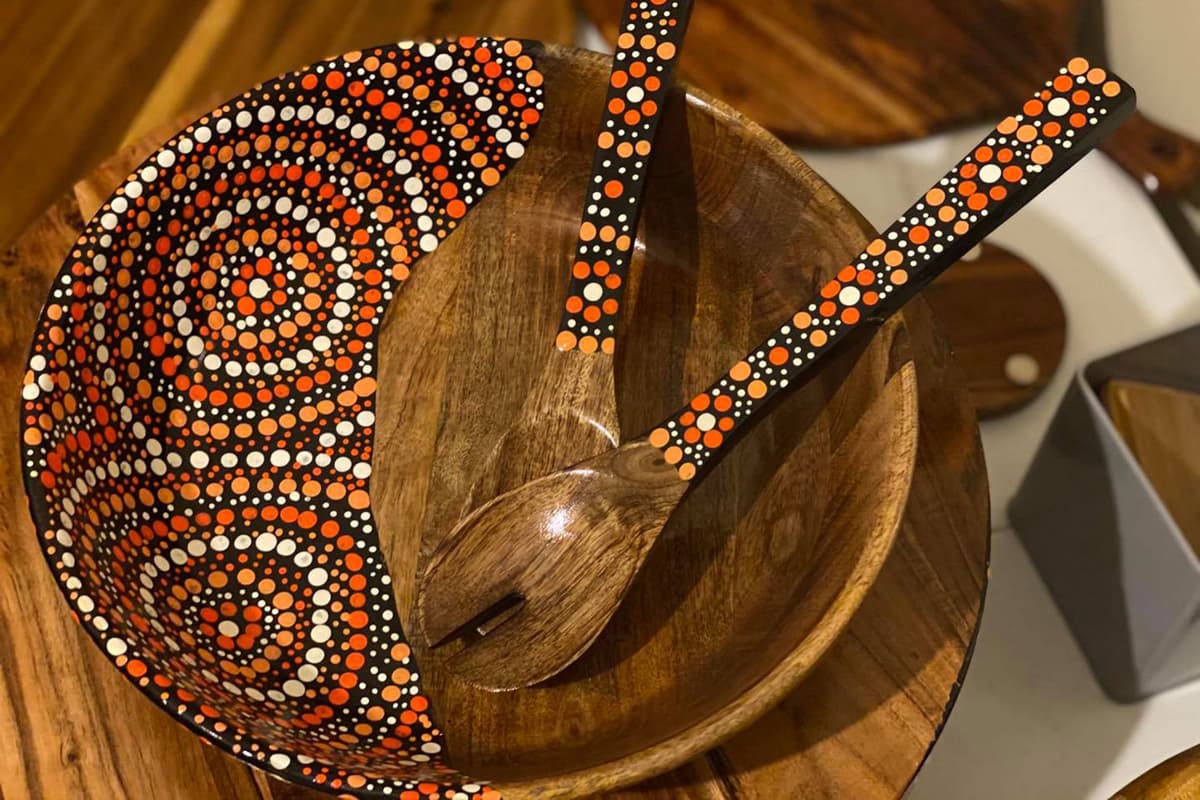
I always had this belief that I didn't have an artistic bone in my body, and that I couldn’t paint. I never thought I’d do this. I just started doing it as a hobby — which it still is.
Two and a half years ago, I was approached to donate something for the White Ribbon organisation as they wanted items to sell at an auction — so I did a one-off cheese board. I received many orders after that. What it went for at the auction is what I ended up selling them for, and I went from there.
It’s been great, I love it. Knowing that people like what I do, and that it’s in their houses now. I’ve even sent some overseas. A lady ordered 20 or 30 of my spoons, and they were sent all over the world. It's a great feeling.
Art is a big part of our culture. Some people are ignorant and they don’t understand our culture — the spiritual connection that we have to the country. Art is a very important part of my culture. I love doing it and sharing it with people."
Del's advice to turn a hobby into a business
"Persevere. With my business, someone might not order anything for three months. But then all of a sudden, I’ll get heaps. You need to stick with it. Follow your dreams."
If you think you can do it, just try — you might surprise yourself like I did.
Samantha O'Clery, OCLO
"I have always been fascinated with fashion, style, and the art of self expression through clothes. Aligning with my passion for sustainability and creating avenues for change, my goal is to influence the future of the fashion industry through the growth of sustainably aligned clothing.
OCLO began as a circular and recycled fashion small business I ran in my spare time, while balancing a double degree at university, a part time job, family and other relationships. Whenever I spent time on other things, I felt I was distracting myself from what I really wanted — and needed — to be doing: sourcing, curating and styling sustainable outfits. With a monumental leap of faith, I left university and my job at the time to focus my whole energy on the growth of OCLO.
It was one of the best life decisions I have ever made.
Learning the ins and outs of running a full-time business has been a challenge, but I’m grateful to have learnt exponentially as I’ve gone, uncovering avenues to do things my way. I’ve since expanded my retail business from Perth to Melbourne, and my online business internationally.
It is so important when starting your own business to seek help and advice from the people around you, and I am grateful for those who have been beside me on this journey so far. Since joining the Zeller community, I feel confident that I have the best team and systems in place for OCLO’s sales transactions. The service and support they provide is already a major asset in my business growth and is a step above what I had known from systems that I had used prior to Zeller."



Sam's advice on pursuing a passion
"Trust yourself, believe in your cause, believe that what you have is worth building, and that you are worthy of doing what you love. Have confidence not only in your product but in yourself and your brand."
Morgan Eakin, Ang & M
"We're a mother-daughter duo. My Mum's my best friend. We always talked about opening a business, and after I had my son it kind of just started happening. We opened Ang & M when he was 4 months old.
We’re first time business owners, so everything’s new. There’s always different challenges to tackle — like helping people to find the store, and getting our name out there. A lot of how we run the business is trial and error, but I think that’s just part and parcel of starting a new business. Every day it gets busier and busier, and the business grows.
Going into business can be daunting, but when you know your business partner so well, there’s nothing to really worry about. It’s our business, so we get to run it how we want to. We’re big believers in work-life balance; we've had jobs in the past that haven't had that. Family comes first, and we've built our business around that.
We spent years wondering, 'Should we, shouldn't we?' And now we think we should've done it earlier."
Morgan's advice on re-entering the workforce
"It was hard at the start, but I went into it thinking, 'This is it.' I would have had to go back to work regardless. I understand there's limitations, but I don’t think having a baby should stop you from doing the thing you’re passionate about.
If you have the passion and the support, I just think — why not? What’s stopping you? Just do it."
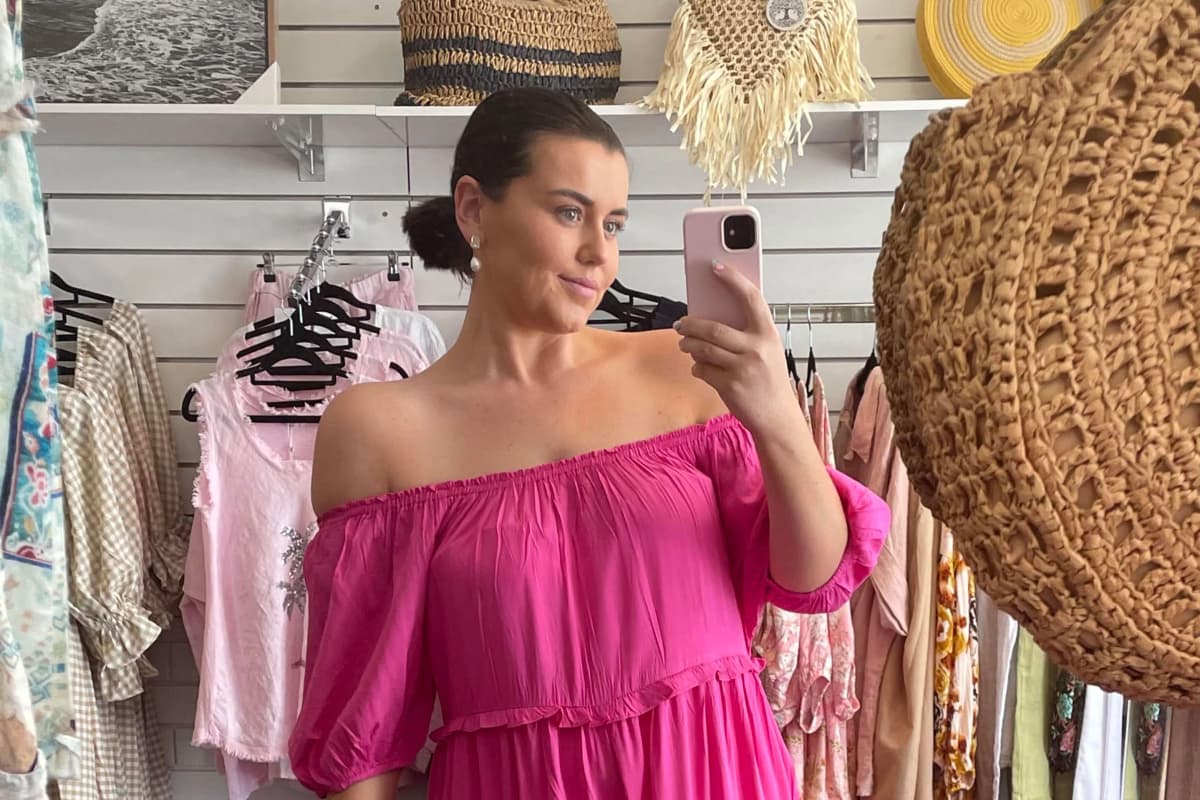
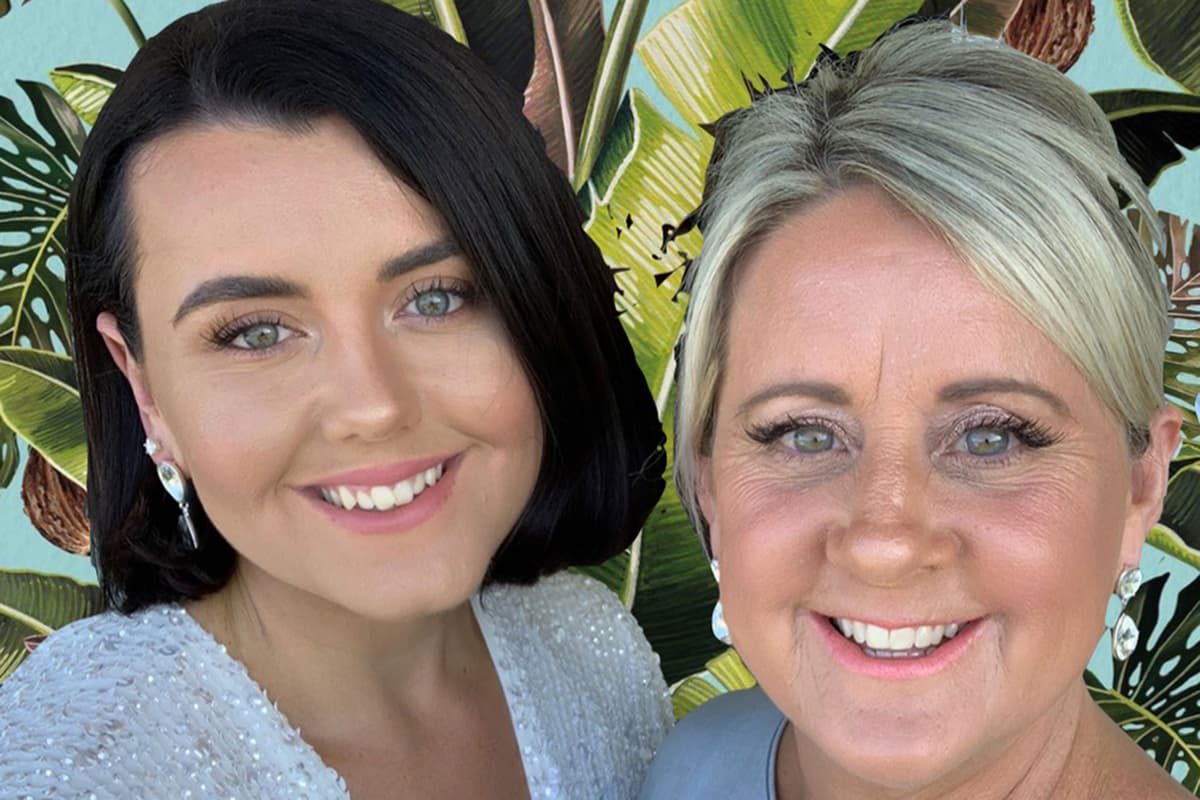
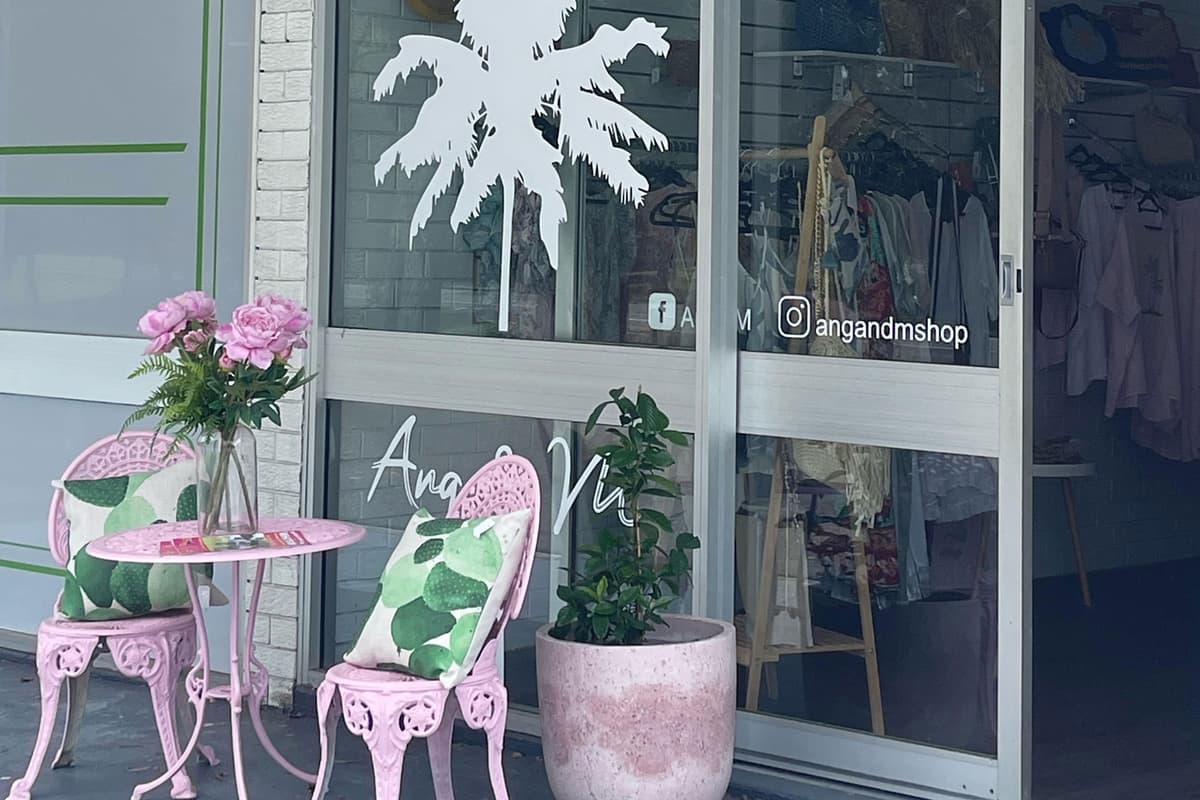
Angela Eakin, Ang & M
"Morgan & I used to work in a pharmacy together, and it had a huge boutique and homewares store within it. She was my right hand girl — I taught her about retail, and buying. When the pharmacy was sold, we decided to set up our own business.
For us, the only challenge is that sometimes Morgan will say, 'We should try this product' — and because I’ve had more experience, my first reaction will be, 'I don’t think so'. But we’ve learned to hear each other out, try different things, and be more flexible."
We kind of forget about making money.
It’s all about loving what we do, and bringing a love for nice things and fashion to our community, so everyone can have access to it. We focus on finding Australian products that are a bit unusual, a bit different — and we don’t repeat things.
There are a few boutiques on the island, but we seem to have a point of difference. Customer service is something we prioritise — we want to make everyone feel welcome, and share our passion."
Angela’s advice on taking a leap of faith
"Go with your gut. If you’re passionate about something, just have a go. What’s the worst that can happen?
For so long, I was nervous to do it. But I knew in my heart that if I loved it, other people would love it too. If you have something you really believe in, it'll work."
Natalie Schepis, Hair by I
"Hairdressing was a childhood passion for me. I began my career at 14, as a first-year apprentice in a salon in Melbourne’s inner north. It was a very business-oriented salon, with targets and benchmarks for everything. The focus was on generating profit, and it felt extremely professional — rather than family-oriented. It was my dream to open my own hair business, and run it my way.
It all started when I had two kids. I wanted to get back into the workforce, and earn an income, so I started doing hair for friends and family from my garage. Two years later, I had outgrown the space. So, we opened up our shop three minutes from home.

Hair by I is all about affordable luxury. We don’t want your average Joe missing out. We keep our services at a high standard, but at a price point everyone can afford. We’d be the longest standing salon in Doreen now, with about 5,000 clients in our database. And over Christmas, we took over the space next door and doubled in size.
There was a time when I was running three salons, but I’ve since closed two. This salon in Doreen is the one that has always been successful. I think it comes down to working personally in the salon, versus having other people run it. I’d rather have the one salon, and do it right."
Natalie's advice to scale a successful business
"During lockdown, I decided to write a book: Ins & Outs of the Hair Game. It’s about how to run a salon, so other people can make their hair business a success.
My advice is to understand your business and your expenses early on. It took me two salons to do that, but now I can look at a salon and see where the spending is too high or too low."
